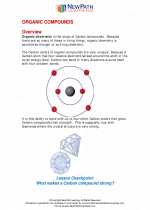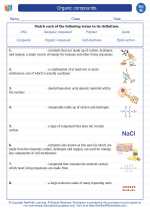Bases
Bases are a class of chemical compounds that have a pH level greater than 7. They are often characterized by their bitter taste and slippery feel, and they are the opposite of acids. Bases are an important concept in chemistry and are widely used in various applications, from household cleaning products to industrial processes.
Properties of Bases
Some key properties of bases include:
- pH Level: Bases have a pH level greater than 7. When dissolved in water, they produce hydroxide ions (OH-) which are responsible for their alkaline properties.
- Taste and Feel: Bases often have a bitter taste and a slippery or soapy feel. This is why many cleaning products, such as soaps and detergents, are classified as bases.
- Chemical Reactions: Bases can react with acids to form salts and water in a process known as neutralization. This is a key concept in understanding the behavior of bases in chemical reactions.
Common Examples of Bases
There are several common examples of bases that are encountered in everyday life:
- Sodium Hydroxide (NaOH): Also known as lye, sodium hydroxide is a strong base used in the production of soaps and detergents.
- Ammonia (NH3): Ammonia is a common household base found in cleaning products and used in various industrial processes.
- Magnesium Hydroxide (Mg(OH)2): This base is used in antacids to neutralize excess stomach acid and provide relief from heartburn.
Study Guide
When studying bases, it's important to focus on the following key points:
- Understand the concept of pH and how it relates to acidity and alkalinity.
- Learn about the chemical properties of bases, including their ability to donate hydroxide ions in solution.
- Identify common examples of bases and their uses in various applications.
- Explore the concept of neutralization reactions and how bases interact with acids.
- Practice solving problems related to calculating pH levels and understanding the strength of bases.
By mastering these concepts and applying them to real-world examples, you can develop a strong understanding of bases and their significance in the field of chemistry.
.◂Science Worksheets and Study Guides Eighth Grade. Organic compounds
Study Guide Organic compounds
Organic compounds  Worksheet/Answer key
Worksheet/Answer key Organic compounds
Organic compounds  Worksheet/Answer key
Worksheet/Answer key Organic compounds
Organic compounds  Worksheet/Answer key
Worksheet/Answer key Organic compounds
Organic compounds  Vocabulary/Answer key
Vocabulary/Answer key Organic compounds
Organic compounds  Vocabulary/Answer key
Vocabulary/Answer key Organic compounds
Organic compounds 

 Worksheet/Answer key
Worksheet/Answer key
 Worksheet/Answer key
Worksheet/Answer key
 Worksheet/Answer key
Worksheet/Answer key
 Vocabulary/Answer key
Vocabulary/Answer key
 Vocabulary/Answer key
Vocabulary/Answer key

The resources above cover the following skills:
Physics: Students will use scientific skills and processes to explain the interactions of matter and energy and the energy transformations that occur.
Thermodynamics: Identify and explain that heat energy is a product of the conversion of one form of energy to another.
Identify and describe the various forms of energy that are transformed in order for systems (living and non-living) to operate: Chemical - Flashlight-Light; Mechanical - Pulleys-Motion; Solar/Radiant - Solar calculator; Chemical - Plant cells.